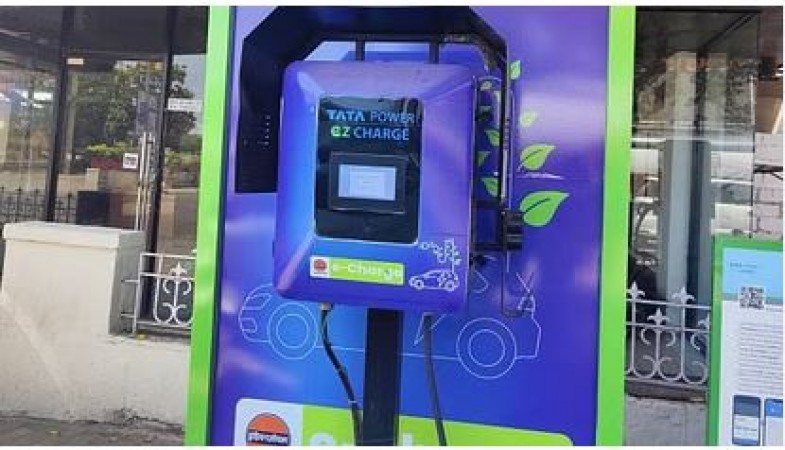
The electric vehicle (EV) market in India is currently at a crossroads as the government contemplates the future of EV subsidies. Speculations are rife that the Faster Adoption and Manufacturing of Hybrid and Electric Vehicles (FAME) scheme may come to an end, potentially making electric vehicles more expensive. In this article, we delve into the details of this development and its potential impact on the EV market.
The Faster Adoption and Manufacturing of Hybrid and Electric Vehicles (FAME) scheme was initiated by the Indian government to promote the adoption of electric vehicles and reduce carbon emissions. The scheme aimed to provide financial incentives to both manufacturers and buyers of electric vehicles, making them more affordable and appealing.
In its initial phase, FAME I focused on encouraging the production and adoption of electric and hybrid vehicles. It offered incentives to manufacturers to produce electric vehicles and also provided subsidies to buyers, reducing the upfront cost.
FAME II, the second phase of the scheme, had a broader scope. It aimed to expand the charging infrastructure, promote electric two-wheelers and buses, and support research and development in the EV sector. However, it primarily continued the financial incentives for EV buyers.
While the FAME scheme has contributed to the growth of the EV market in India, there are concerns about its sustainability. The government is currently reevaluating the scheme, and this has raised questions about the future of EV subsidies.
Electric vehicles are generally more expensive than their internal combustion engine counterparts. EV subsidies under FAME have played a significant role in bridging this price gap, making electric vehicles a more attractive choice for consumers. If the subsidies are phased out, the cost of EVs may surge, potentially affecting their adoption rate.
Manufacturers of electric vehicles have also benefitted from the FAME scheme. The subsidies have encouraged investment in EV production and research. However, if the subsidies are discontinued, manufacturers may face challenges in maintaining their competitive edge.
From a consumer's point of view, the availability of subsidies has been a key factor influencing their decision to purchase an electric vehicle. Without these incentives, the appeal of EVs might diminish.
Proponents of electric vehicles often highlight the lower Total Cost of Ownership (TCO) compared to traditional vehicles. Subsidies have been a vital component of this cost calculation. If they are withdrawn, it might change the TCO equation and impact consumer choices.
The FAME scheme also supported the expansion of charging infrastructure, a critical aspect of promoting EV adoption. The discontinuation of the scheme might slow down the development of charging stations.
The availability of charging infrastructure directly addresses range anxiety - a common concern among potential EV buyers. If the expansion of charging stations is affected, it might deter some from making the switch to electric vehicles.
One of the primary goals of the FAME scheme was to reduce carbon emissions and promote cleaner transportation. If the subsidies are removed, it could hamper the progress towards a more sustainable and environmentally friendly transportation system.
The discontinuation of the FAME scheme might be seen as a step backward in the fight against climate change. The electric vehicle industry has the potential to significantly reduce greenhouse gas emissions, and subsidies play a vital role in achieving this goal.
The government is faced with a challenging decision. While it needs to manage its financial resources, it also has a responsibility to promote sustainable transportation.
The government may be reevaluating the FAME scheme due to budgetary constraints. Allocating resources to other critical areas, especially in the wake of the ongoing pandemic, may be a priority.
On the other hand, promoting sustainable and eco-friendly transportation is essential for India's long-term environmental goals. The government must find a balance between fiscal prudence and its commitment to cleaner transportation.
The potential discontinuation of the FAME scheme has sparked reactions from various stakeholders in the EV industry.
Manufacturers of electric vehicles have expressed concerns about the impact on their business. They argue that the subsidies have been instrumental in boosting the demand for EVs.
In response to the uncertainty around the FAME scheme, some industry players are advocating for alternative incentives, such as tax breaks or other forms of support.
The future of electric vehicle subsidies remains uncertain. Several scenarios are possible, each with its own implications.
One possibility is a gradual reduction in subsidies, allowing the market to adjust over time. This approach might soften the blow for consumers and manufacturers.
The government could opt for policy revisions, exploring new ways to support the EV industry while addressing budgetary concerns.
Another scenario is the continuation of the FAME scheme in its current form, reaffirming the government's commitment to electric mobility. The potential discontinuation of the FAME scheme in India raises concerns about the future of electric vehicle subsidies. It has far-reaching implications for consumers, manufacturers, the environment, and the government. The decision the government ultimately makes will shape the path of electric vehicle adoption in the country, and it is a topic of significant debate and discussion within the industry. In conclusion, the electric vehicle market in India is at a critical juncture, and its future trajectory depends on the government's approach to EV subsidies and the broader commitment to sustainable transportation.
Exercise Shows Promise in Reducing Age-Related Anxiety: What New Study Finds
How to Maintain Good Health through Proper Hydration
You can keep yourself safe from poisonous air with these 5 gadgets